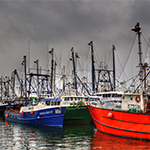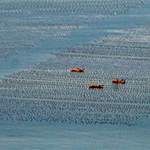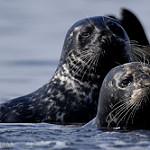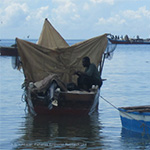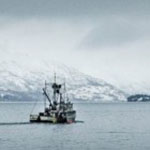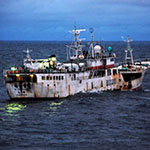Future fisheries can expect $10-billion revenue loss due to climate change
Global fisheries stand to lose approximately $10 billion of their annual revenue by 2050 if climate change continues unchecked
Daniel Pauly named Legend of Canadian Fisheries Science and Management
The Canadian Aquatic Resources Section (CARS) of the American Fisheries Society has named Dr. Daniel Pauly a “Legend of Canadian Fisheries Science and Management.”
High seas fisheries management could recoup losses due to climate change
Strengthening governance and closing the high seas to fishing increased the resilience of coastal countries to climate change, especially in tropical countries where there is a high dependence on fisheries for food and livelihood.
Can aquaculture help tackle global food security?
With an average growth rate of about 8.8%, aquaculture has proven to be the fastest growing agro-food sector in the world, however the industry has a bad image.
Harbor seal dietary insights gained through new DNA technique
A promising new technique called DNA metabarcoding, can be used to identify specific marker genes in seal droppings.
West Africa fisheries experts welcomed
Fisheries scientists and experts from Mauritania, Senegal, Gambia, Cape-Verde, Guinea Bissau, Guinea, and Sierra Leone will attend a capacity-building workshop at UBC. Updates added.
Bright spots shine light on the future of coral reefs
In one of the largest global studies of its kind, researchers conducted over 6,000 reef surveys in 46 countries across the globe, and discovered 15 locations where there were a lot more fish on coral reefs than expected.
Falling fish catches could mean malnutrition in the developing world
Global fish catches peaked in 1996, while the Earth’s human population is expected to rise through 2050, from the current 7.3 billion to between nine and 10 billion.
Ships flagged for illegal fishing still able to get insurance
Illegal fishing is a major problem that siphons an estimated $10 to 20 billion annually from the global economy, and causes millions of tonnes of fish to disappear from the oceans.
Biological oceanographer Evgeny Pakhomov named IOF director
Pakhomov’s research focuses on physical-biological interactions in the oceans, a critical field of study for predicting ecosystem response driven by climate change.
